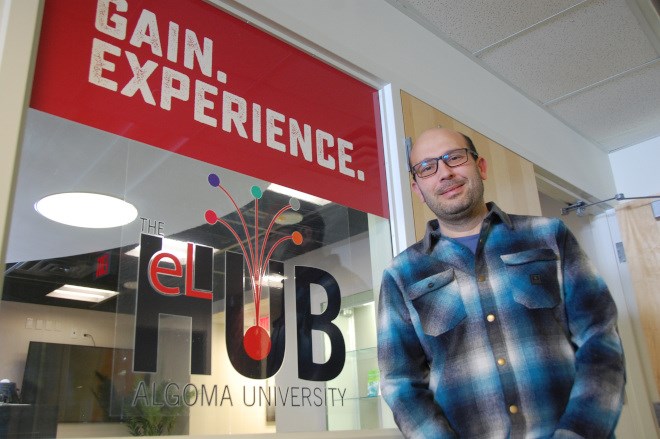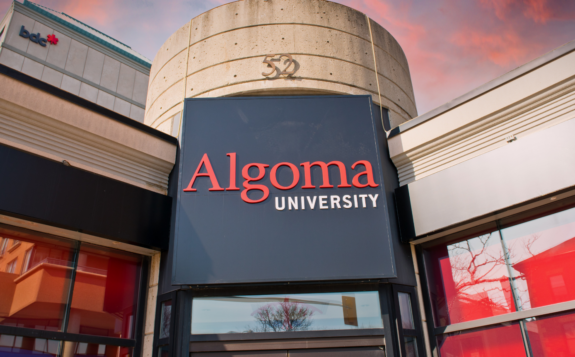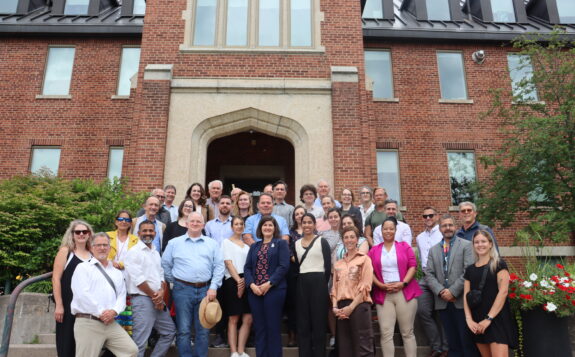Pedro Antunes gets excited thinking about the possibilities to create a more knowledge-based economy in Sault Ste. Marie.
The associate biology professor at Algoma University marvels at the environmental research and science capacity both on the Queen Street campus and at two nearby government forestry labs.
“In a relatively small community, we have a huge number of people with post-secondary degrees in all areas of science and forestry,” he said.
“From there it can stem into many so many areas.”
With an undergraduate population of about 1,000 students, Algoma University is still relatively young as an independent post-secondary institute, 10 years removed from its affiliation with Laurentian University in Sudbury.
As the executive
In the last decade, Antunes explained, there’s been a “cultural shift” at Algoma that’s reflected in new building construction and the passage of a strategic plan in 2016, placing an emphasis on research and innovation.
Last December, the university announced the creation of an innovation space – the Experiential Learning Hub – where students, faculty and employers can collaborate on research projects.
“It’s really tying all these parties together.”
Antunes said they meet regularly with Lallemand (formerly BioForest Technologies), a natural pesticide company in the Sault that often hires Algoma graduates, to discuss their projects and needs.
“It’s a great example of what we want to replicate.”
Other discussions are taking place with Algoma Power and with an agricultural company that wants to test new products for potential commercialization.
“All these things are brewing but (until about a year ago) we didn’t have a dedicated research office to think about these things,” he said.
The research office is run out of the Convergence Centre, the university’s new bioscience and technology building.
From there, they can manage projects, apply for external research funding, and have those conversations on how the university and its students can best serve the community through targetted research.
Antunes is plugged into the Future Sault Ste. Marie visioning exercise and is paying close attention to large natural resource projects in Northern Ontario, such as the Ring of Fire, and the possibility of a ferrochrome smelter coming to the Sault.
He believes that the university can play a role in providing scientific answers to any potential environmental issues.
There are also synergies to be had, he said, by networking with Sault College and local government institutions like the Great Lakes Forestry Centre (GLFC) and the Ontario Forest Research Institute (OFRI).
“These four organizations can be stronger working together.”
But Antunes expects a turning point in the university’s evolution will occur when Algoma finally launches graduate programs.
That will provide a real bump in research activity and should better cement their relationship with GLFC and OFRI.
“Right now they partner with a lot of other universities because we don’t have a graduate program,” he said.
That’s why Antunes is particularly enthused about the launch of a graduate program in biology, in either 2020 or 2021, which he expects to be a real game-changer for Algoma.
Having graduate students on campus will allow them greater access to these institutions on a day-to-day basis, deliver more external research dollars, and allow students, writing their thesis, to work more closely with government researchers on real-world projects.
Through the research office, the number of grant applications is increasing and Antunes expects to hear good news about those this year.
He views the university’s next decade as one of growth in terms of enrolment, particularly Indigenous students, and with new faculty hires.
“The vision is here, the strategic plan is in place, there’s stability in the organization and our students can see and feel that they’re coming to a good place,” Antunes said.
“So much is driven by the expertise of our faculty. And we need to be strategic when we hire new faculty and create new programs that we understand what are the needs of the community.”
Original post on Northern Ontario Business: https://www.northernontariobusiness.com/industry-news/training-education/building-a-knowledge-based-economy-1316144
Share Article




